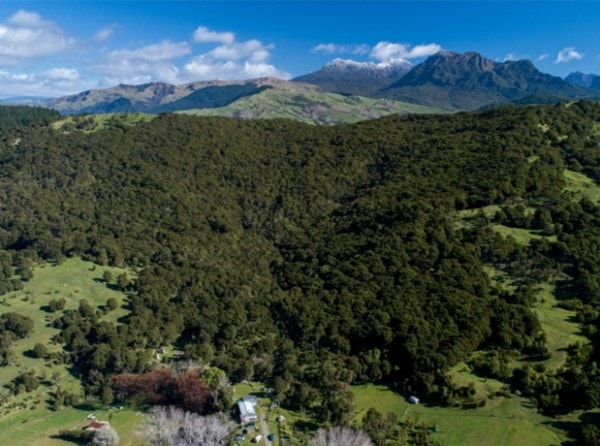Nuhiti Q entered the New Zealand Emissions Trading Scheme (ETS) in 2012, aiming to be carbon neutral by 2020.

Since launching its native regeneration scheme in 2010 Nuhiti Q has managed to retire stock from the land and plant more than 70 hectares with eucalyptus as permanent forest.
The income they received from the ETS, alongside profits from their honey, oil and nut products, offset the retirement of grazing land.
In September 2016, Gull New Zealand joined forces with Nuhiti Qto help restore their land.
Under an initial two-year agreement, Gull has purchased 12,000 units of Nuhiti Q’s carbon credits totalling just over $220,000.
This money would be put towards fencing repairs and planting more mānuka.
The new research project would use this agreement between Nuhiti Q and Gull Oil as a case study and engage other Māori land blocks and major emitters to look at the strengths and weaknesses of different arrangements for native reforestation.
“The aim of the project is to provide insights on how communities and landowners can efficiently use carbon markets to encourage profitable native forest regeneration,” Motu research fellow David Fleming Munoz said.
“We would like to see more native forests. They are a long-term carbon store that help stabilise the climate.
“They also support biodiversity, protect watersheds from erosion, improve water quality and make the landscape more attractive.”
Motu senior fellow Suzi Kerr said increasing employment was an offshoot of the project.
“This kind of thing also provides local jobs, given the fencing, and pest and weed control work needed.”
Hikurangi Enterprises will work with Māori landowners on the East Coast to identify opportunities for increasing sustainable use of natural resources.
Ruatoria-based researcher Pia Pohatu will be focused on engaging Māori landowners as part of the project while researchers from Motu will work with emitters interested in carbon credit deals.
Motu will evaluate current and future engagements between New Zealand carbon unit purchasers and Maori groups as they evolve and generate different outcomes, including the role of contracts and processes.
Two postgraduate students from Victoria University of Wellington will also be involved in the research.